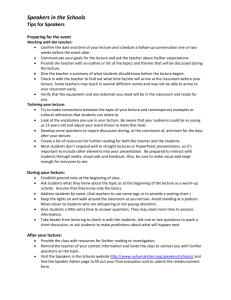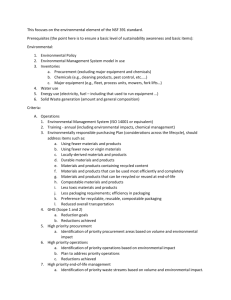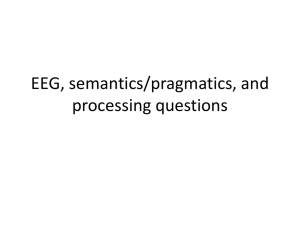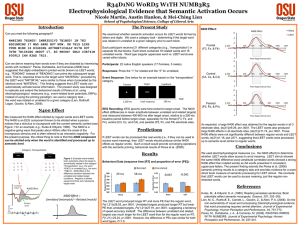Adaptation to reductions: Challenges of regional variation
advertisement
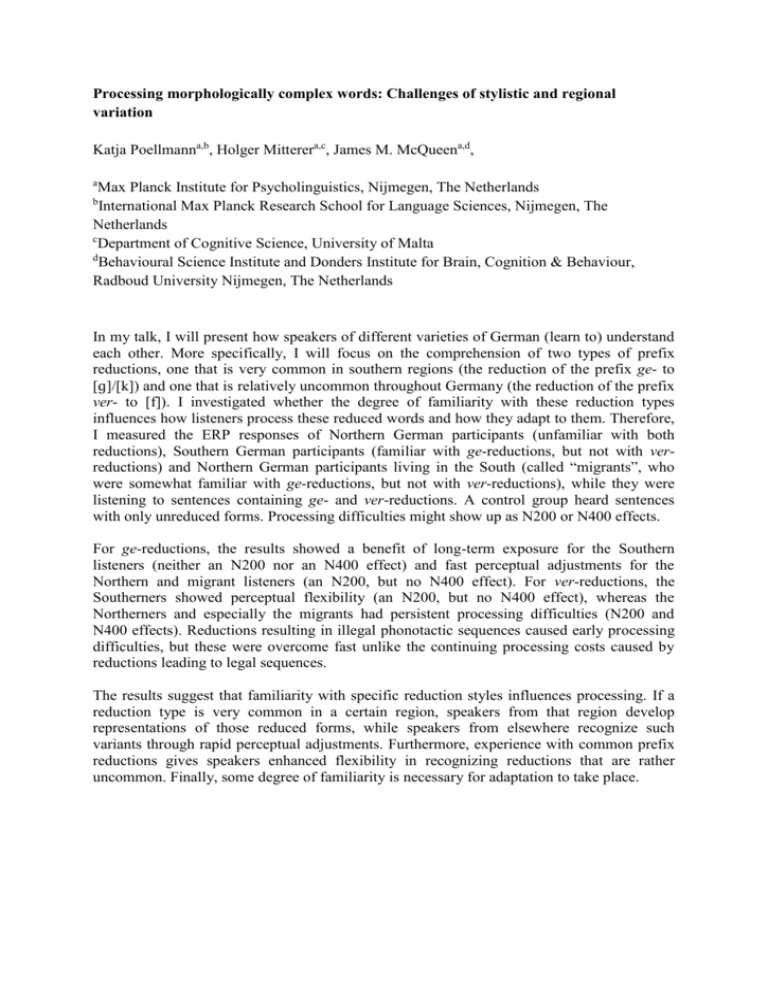
Processing morphologically complex words: Challenges of stylistic and regional variation Katja Poellmanna,b, Holger Mitterera,c, James M. McQueena,d, a Max Planck Institute for Psycholinguistics, Nijmegen, The Netherlands International Max Planck Research School for Language Sciences, Nijmegen, The Netherlands c Department of Cognitive Science, University of Malta d Behavioural Science Institute and Donders Institute for Brain, Cognition & Behaviour, Radboud University Nijmegen, The Netherlands b In my talk, I will present how speakers of different varieties of German (learn to) understand each other. More specifically, I will focus on the comprehension of two types of prefix reductions, one that is very common in southern regions (the reduction of the prefix ge- to [ɡ]/[k]) and one that is relatively uncommon throughout Germany (the reduction of the prefix ver- to [f]). I investigated whether the degree of familiarity with these reduction types influences how listeners process these reduced words and how they adapt to them. Therefore, I measured the ERP responses of Northern German participants (unfamiliar with both reductions), Southern German participants (familiar with ge-reductions, but not with verreductions) and Northern German participants living in the South (called “migrants”, who were somewhat familiar with ge-reductions, but not with ver-reductions), while they were listening to sentences containing ge- and ver-reductions. A control group heard sentences with only unreduced forms. Processing difficulties might show up as N200 or N400 effects. For ge-reductions, the results showed a benefit of long-term exposure for the Southern listeners (neither an N200 nor an N400 effect) and fast perceptual adjustments for the Northern and migrant listeners (an N200, but no N400 effect). For ver-reductions, the Southerners showed perceptual flexibility (an N200, but no N400 effect), whereas the Northerners and especially the migrants had persistent processing difficulties (N200 and N400 effects). Reductions resulting in illegal phonotactic sequences caused early processing difficulties, but these were overcome fast unlike the continuing processing costs caused by reductions leading to legal sequences. The results suggest that familiarity with specific reduction styles influences processing. If a reduction type is very common in a certain region, speakers from that region develop representations of those reduced forms, while speakers from elsewhere recognize such variants through rapid perceptual adjustments. Furthermore, experience with common prefix reductions gives speakers enhanced flexibility in recognizing reductions that are rather uncommon. Finally, some degree of familiarity is necessary for adaptation to take place.


